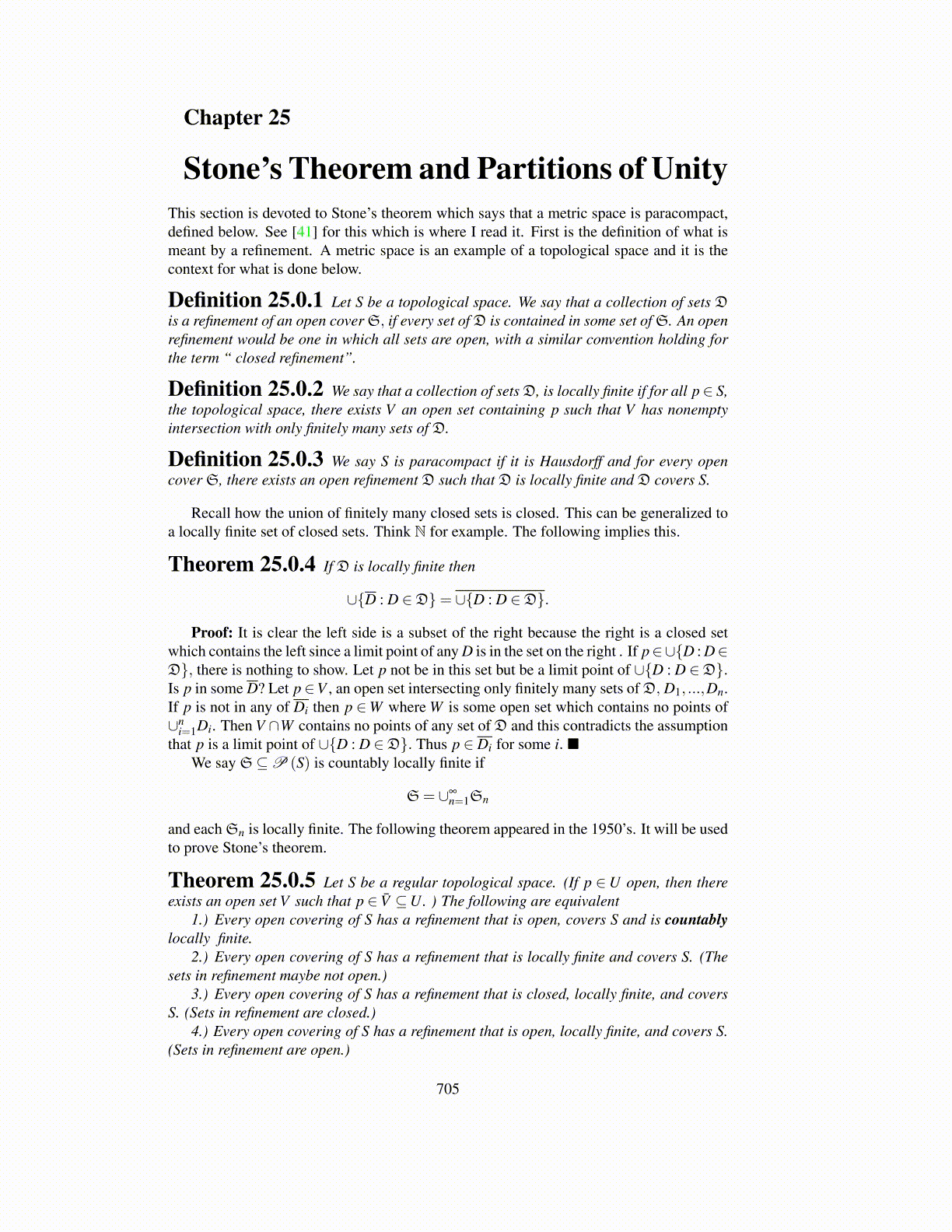
Chapter 25
Stone’s Theorem and Partitions of UnityThis section is devoted to Stone’s theorem which says that a metric space is paracompact,defined below. See [41] for this which is where I read it. First is the definition of what ismeant by a refinement. A metric space is an example of a topological space and it is thecontext for what is done below.
Definition 25.0.1 Let S be a topological space. We say that a collection of sets Dis a refinement of an open cover S, if every set of D is contained in some set of S. An openrefinement would be one in which all sets are open, with a similar convention holding forthe term “ closed refinement”.
Definition 25.0.2 We say that a collection of sets D, is locally finite if for all p∈ S,the topological space, there exists V an open set containing p such that V has nonemptyintersection with only finitely many sets of D.
Definition 25.0.3 We say S is paracompact if it is Hausdorff and for every opencover S, there exists an open refinement D such that D is locally finite and D covers S.
Recall how the union of finitely many closed sets is closed. This can be generalized toa locally finite set of closed sets. Think N for example. The following implies this.
Theorem 25.0.4 If D is locally finite then
∪{D : D ∈D}= ∪{D : D ∈D}.
Proof: It is clear the left side is a subset of the right because the right is a closed setwhich contains the left since a limit point of any D is in the set on the right . If p∈∪{D : D∈D}, there is nothing to show. Let p not be in this set but be a limit point of ∪{D : D ∈D}.Is p in some D? Let p∈V , an open set intersecting only finitely many sets of D, D1, ...,Dn.If p is not in any of Di then p ∈W where W is some open set which contains no points of∪n
i=1Di. Then V ∩W contains no points of any set of D and this contradicts the assumptionthat p is a limit point of ∪{D : D ∈D}. Thus p ∈ Di for some i. ■
We say S⊆P (S) is countably locally finite if
S= ∪∞n=1Sn
and each Sn is locally finite. The following theorem appeared in the 1950’s. It will be usedto prove Stone’s theorem.
Theorem 25.0.5 Let S be a regular topological space. (If p ∈U open, then thereexists an open set V such that p ∈ V̄ ⊆U. ) The following are equivalent
1.) Every open covering of S has a refinement that is open, covers S and is countablylocally finite.
2.) Every open covering of S has a refinement that is locally finite and covers S. (Thesets in refinement maybe not open.)
3.) Every open covering of S has a refinement that is closed, locally finite, and coversS. (Sets in refinement are closed.)
4.) Every open covering of S has a refinement that is open, locally finite, and covers S.(Sets in refinement are open.)
705